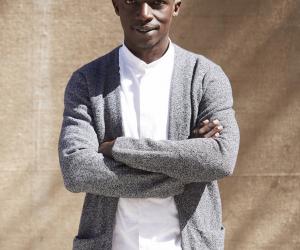Entrepreneur Yodit Eklund started her surf brand Bantu Wax in 2010. The brand has always been distinctly African, and reflects the surf culture that Eklund grew up with.
“I surfed with guys who learned how to surf before they knew how to swim,” says Eklund. “Talk about fearless and daring! It’s so inspiring.”
In 2014 Eklund decided to restructure her business to engage much more with the youth culture in Africa. Previously, Bantu Wax board shorts, bikinis and t-shirts had only been available in prestigious stores in America, Japan and England, and there weren’t many places you could buy Bantu in Africa.
Last year Eklund opened a Bantu Wax surf shop on the beaches of Dakar, Senegal, and stores in South Africa and Ghana are on the way. Ivory Coast architect Issa Diabaté designed the Dakar store, which is made out of shipping containers.
The Bantu swimwear is inspired by African wax printed fabrics, and is designed to be function as well as trendy.
“If you go to an African woman in a market place in Africa she is wearing insane cool prints, but she has a kid on her back and she is selling vegetables. They know everything about colour and print and functionality! That was our goal with Bantu,” says Eklund.
Most of all Bantu is proudly African: the products are made sustainably in Africa, and breaks the clichés that every surfer aspires towards the California dream.
“Bantu is not supposed to be one of these archaic brands like Billabong or Quicksilver, where you have only seen imagery of blonde hair and blue eyes. What was cool about Bantu was that it was an African surf brand – and African means black, white, Arab, Asian, Indian.”
Born to an Ethiopian mother and American father, Eklund grew up moving all across the continent with her parents before studying in the United States.








